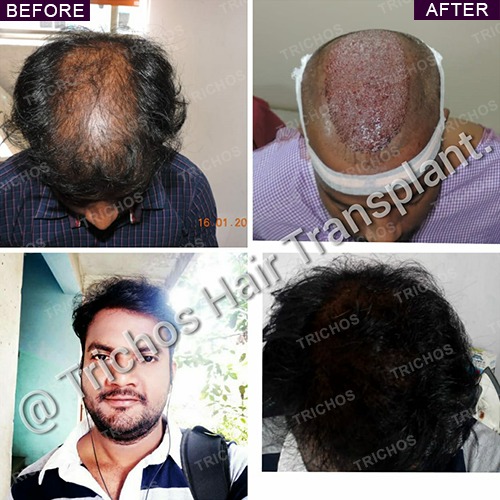FAQs on Hair Transplants
Some questions related to hair transplants repeatedly surface as curious viewers and patients keep asking the same questions over and over again
In this educational video, renowned trichologist, dermatologist and one of the top hair transplant experts in Hyderabad Dr John Watts take up four Frequently Asked Questions (FAQs) and clarifies them in layman’s understanding.
Right Age for Hair Transplants: (00:16:11)
What is the right age for one to undergo a hair transplant? This is the first of the FAQs that Dr John Watts answers in this video series.
“The ideal age to undergo a hair transplant is between 25-45 years,” he says, advising viewers that getting a transplant when one is below 25 years or above 45 years may impact the results.
When one’s age is below 25 years and one still opts for a hair transplant, the result would not be optimum as at this age baldness is yet to set for most people usually. In contrast, beyond 45 years, the hair transplant results too would be affected as healing capacity is slowed down due to the ageing process.
“This would compromise the overall results,” he says.
Can we get a hair transplant done in a small patch of baldness? (01:18:16)
This is a common query that Dr John Watts seeks to address in this video by offering a clear explanation.
Many patients seeking hair transplants face baldness issues on a very small patch of the scalp. It could be on the crown area or on the sides of the temple where baldness could be confined to one particular area.
“The answer is YES. We can perform such a transplant with success,” answers Dr John Watts in the video.
However, there is a catch. If existing hair is still there and in growing stages and baldness has not completely set in that particular patch, Dr John Watts says that in such a scenario hair transplant results won’t be perfect.
“We may not achieve the desired density as existing hair cannot be disturbed in that area with a transplant of new grafts,” he says.
Hence, one must ideally wait till baldness has completely set in that area for good results or one may have to undergo a second hair transplant after existing hair is lost to baldness.
Ideal area for donor hair extraction for transplant (02:35:17)
This is also a common query that Dr John Watts seeks to address with a clear explanation in this video. hair is lost to baldness.
#DrJohnWatts | FAQs on Hair Transplants | Best Trichologist in Hyderabad Explains
In his explanation, Dr John Watts says that hair that grows independently of DHT (Dihydrotestosterone) influence can be considered a safe zone area for donor hair extraction for transplantation.
“Usually, the back of the scalp or the side of the scalp have hair that is independent of DHT influence and provide good hair grafts for transplant with success rate,” says Dr John Watts.
The other regions where donor hair can be extracted are beard, chest hair or hair obtained from one’s intimate region.
Is there an alternative to hair growth without a hair transplant? (03:45:08)
This is also a query that is quite common as some hair loss patients have a mistaken belief that hair transplant surgeries are not effective, which is not true.
However, it is also true that not all hair loss conditions call for a hair transplant surgery as many conditions can be treated with medications as well.
We must also remember that not all candidates are suitable for a hair transplant even if they are interested to have one as various factors come into play.
“In case of early-stage hair loss or hair loss induced by conditions attributed telogen effluvium or alopecia aerate or due to health issues such as weight loss initiative, pregnancy or typhoid, they can be addressed with medications,” informs Dr John Watts.
Trichos offers premium hair transplant solutions for a range of hair loss conditions. Call us today for more information!
Book an appointment for expert guidance


About
Causes
Alopecia
Restoration
Procedures
Locations
Disclaimer: While hair transplants are generally safe and effective, as with any medical procedure, there can be minimal and temporary side effects based on specific or underlying medical condition of the individual patient. Please consult in person with our qualified medical team at Trichos for a thorough assessment of your specific condition and individualized guidance on the potential risks and benefits associated with our hair restoration treatments.
Learn more about Medical Consent for Surgeries.



